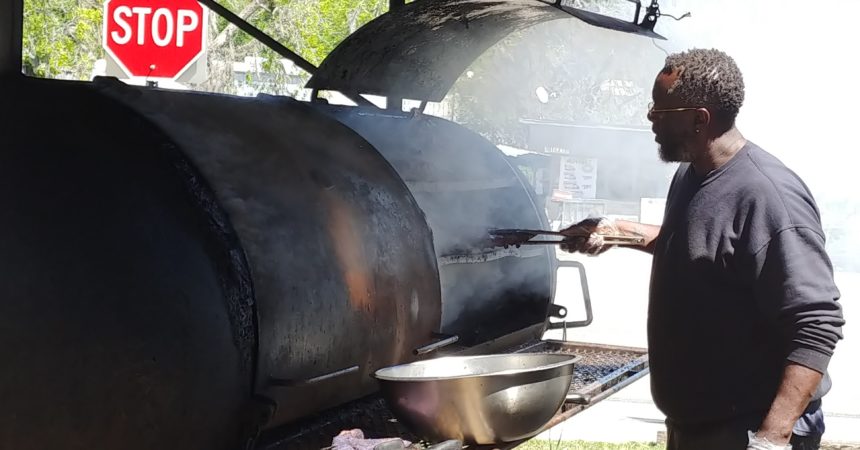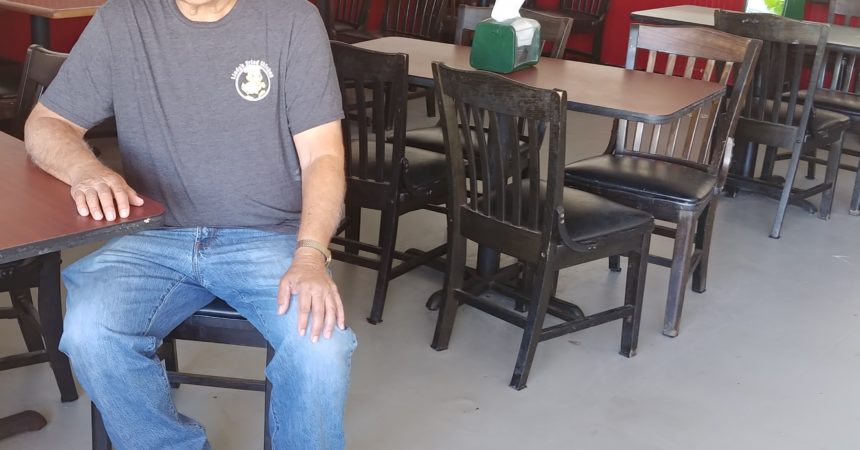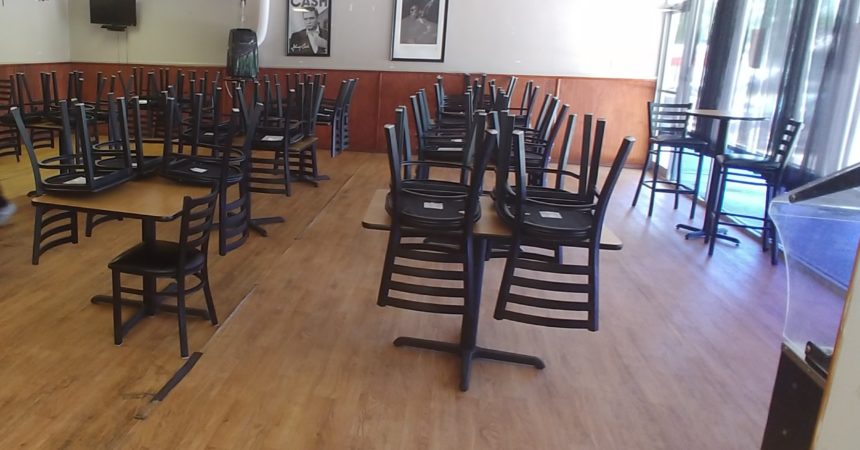Southside restaurants hit hard by shutdown
After going on hiatus for a few weeks over concerns about the spread of the coronavirus, Edwin Barcus decided to reopen his barbeque stand on South Monroe last week.
The line outside of the tiny building isn’t the usual size, but a few people waited for their food. Barcus stays busy on the grill.
He understands that with most government workers staying at home business would be slower than usual. He suspects he might lose more because of the coronavirus, though.
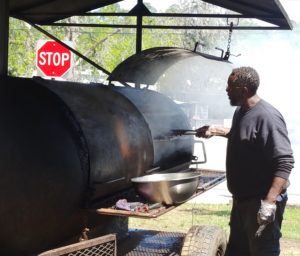
Edwin Barcus prepares ribs for his customs on South Monroe Street where his Five Bucks BBQ is located.
“People are getting more nervous and more scared,” Barcus said. “Normally we are crazy busy.”
The popular Five Buck BBQ spot is just one of several eateries on Tallahassee’s Southside that are seeing slower business than usually. Staying in business is a day-by-day decision, some owners say.
The fall off began three weeks ago when Gov. Ron DeSantis called for the closure of all restaurants in the state, allowing them to do take out only.
Three of the most popular spots — Lindy’s Chicken, Earley’s Kitchen and Break Fast – had their chairs stocked on tables. So did Orleans on the corner of Palmer Avenue and South Adams Street.
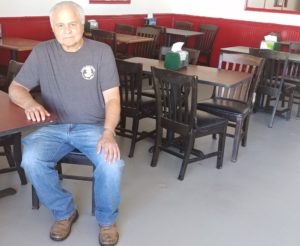
Ray Salis sits inside an empty eating area at Lindy’s location on Lafayette Street.
However, last week they were preparing food just as they did before the outbreak of the virus that causes COVID-19, a respiratory disease.
Just adjacent to Earley’s, Dog Et Al had steady lunchtime traffic at its drive-through pick up. About half a mile south, McDonald’s and Burger King were also doing steady business.
The restaurants with the “soul food” twist seemingly are taking the biggest hit.
“Bills don’t stop coming,” said Robert Brown, co-owner of Break Fast, located in a small strip of businesses on Polk Drive. “I don’t know. Right now we are day by day.”
Brown said he and his partner Kathryn Baughman started the year feeling optimistic that their business would begin turning a meaningful profit. Now they are trying to keep at least one or two of their employees working.

Chairs were stacked inside Break Fast, as they are in most Southside restaurants.
Photos by St. Clair Murraine
Their buffet is set up daily, but they are only allowing two customers at a time to get food. At that pace, they’re seeing about a 60 percent drop in their business.
“Our main goal is to stay open long enough to get through it,” Baughman said, adding that they offer free meals to children who are out of school. “We are trying to stay open as long as we can to make sure we keep that commitment while school is out. We’ve got a lot of families that take advantage of that.
“It’s been kind of an adjustment for us while we try to meet the needs of our community, while also trying to stay afloat.”
The customers who grab food from Break Fast are the loyal ones, Brown said. He worries about disappointing them if they have to close.
“They understand,” he said. “We have a very supportive customer base that is helping us out.”
Brown expressed concern for his employees, too. He and Baughman have been assisting them with filling out forms for assistance from the government, he said, obviously trying to handle the uncertainty of staying in business.
“As long as you do the right thing, everything will work itself out,” he said. “You just don’t know what’s going to happen.”
In response to the challenges that small businesses face, the federal government is pumping $2 trillion in stimulus into the economy. However, DeSantis expressed concern about how long a government loan would carry businesses, especially restaurants.
Lindy’s owner Ray Salis had many of the same concerns as most of the Southside restaurant owners. He said he has had to reduce the hours of operation to 10 a.m. to 8 p.m.
At the location at South Monroe and Orange Avenue, customers call in or walk up to order, then wait outside of the restaurant.
Business is steady at each of his six locations, Salis said, but he is seeing a drop off. It’s better than he expected, however.
“At first it was devastating; how we’re going to survive,” Salis said. “But our customers reacted really well to the carry-out only.”
Salis said the business has endured several tough times during his 52 years of operation, but nothing as impactful as the coronavirus. Every day he hopes it doesn’t get worse because it would be hard to meet a $10,000 payroll monthly, he said.
“I pray for it to not get worse, but watching the news they are saying about 100,000 to 250,000 people in the United States could lose their lives,” he said. “If it reaches that we are all in trouble.”


